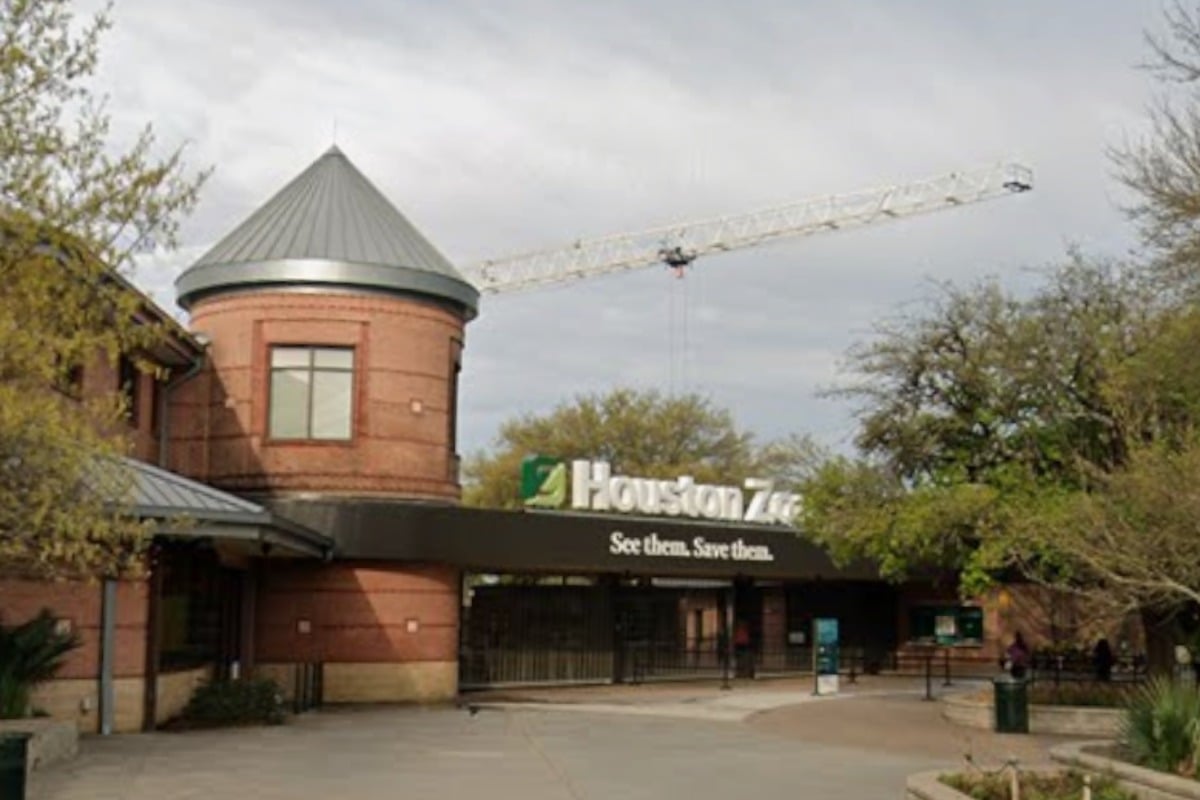Top Stories
Houston’s New Vaccine Offers Hope for Baby Elephants’ Survival

UPDATE: Houston has taken a groundbreaking step in elephant conservation with the development of an mRNA vaccine that protects baby elephants from a lethal herpesvirus. Researchers from the Houston Zoo and Baylor College of Medicine confirmed that the vaccine, first administered on June 18, 2024, is showing promising results in safeguarding young elephants from the deadly EEHV (Elephant Endotheliotropic Herpesvirus).
This urgent breakthrough comes as early reports indicate that vaccinated calves are successfully overcoming infections. Notably, at the Cincinnati Zoo, two young males, Sanjay and Kabir, who were vaccinated earlier this year and later tested positive for EEHV, are now testing negative after developing durable antibody responses. Zoo staff are optimistic as these calves cleared low-level infections without progressing to severe disease.
The vaccine’s development stemmed from a tragic loss—the Houston Zoo lost a young calf named Mac to EEHV, prompting a collaboration with virologist Dr. Paul Ling at Baylor College of Medicine. The first field dose was administered to Tess, a 40-year-old Asian elephant, and her health and antibody levels have been closely monitored since.
As word of this innovative vaccine spreads, other accredited institutions are stepping up. The Fort Worth Zoo reported that its calf, Brazos, received two doses, while the Syracuse’s Rosamond Gifford Zoo has vaccinated its rare twin calves as part of a coordinated testing effort. Researchers are actively collecting blood samples to track immune responses across different herds.
Veterinarians and conservation groups are hopeful about the potential impact of this vaccine. EEHV is the leading cause of death for juvenile Asian elephants in human care, with a high fatality rate in symptomatic cases. The Association of Zoos and Aquariums states that an effective vaccine could significantly reduce these tragic losses and transform conservation strategies for endangered herds.
Despite the encouraging early results, researchers emphasize that this program is still in its early stages. A broader rollout will require more data, production capacity, and coordinated protocols. Partners in this initiative, including funding organizations like Colossal Biosciences, are optimistic about the vaccine’s potential benefits not only for animals in human care but also for at-risk wild populations.
As monitoring efforts expand and additional animals are added to the trial, Houston’s decades-long commitment to elephant research could become a vital tool against a disease that has long threatened the future of Asian elephants. The urgency of this development cannot be overstated—each passing day offers hope for the survival of these majestic creatures.
-

 Science3 weeks ago
Science3 weeks agoOhio State Study Uncovers Brain Connectivity and Function Links
-

 Politics3 weeks ago
Politics3 weeks agoHamas Chief Stresses Disarmament Tied to Occupation’s End
-

 Entertainment3 weeks ago
Entertainment3 weeks agoMegan Thee Stallion Exposes Alleged Online Attack by Bots
-

 Science1 month ago
Science1 month agoResearchers Challenge 200-Year-Old Physics Principle with Atomic Engines
-

 World3 weeks ago
World3 weeks agoFDA Unveils Plan to Cut Drug Prices and Boost Biosimilars
-

 Entertainment3 weeks ago
Entertainment3 weeks agoPaloma Elsesser Shines at LA Event with Iconic Slicked-Back Bun
-

 Top Stories3 weeks ago
Top Stories3 weeks agoFederal Agents Detain Driver in Addison; Protests Erupt Immediately
-

 Business3 weeks ago
Business3 weeks agoMotley Fool Wealth Management Reduces Medtronic Holdings by 14.7%
-

 Entertainment3 weeks ago
Entertainment3 weeks agoBeloved Artist and Community Leader Gloria Rosencrants Passes Away
-

 Business3 weeks ago
Business3 weeks agoHome Depot Slashes Prices on Halloween Favorites Up to 75%
-

 Politics1 month ago
Politics1 month agoNHP Foundation Secures Land for 158 Affordable Apartments in Denver
-

 Top Stories3 weeks ago
Top Stories3 weeks agoOrioles Hire Craig Albernaz as New Manager Amid Rebuild









